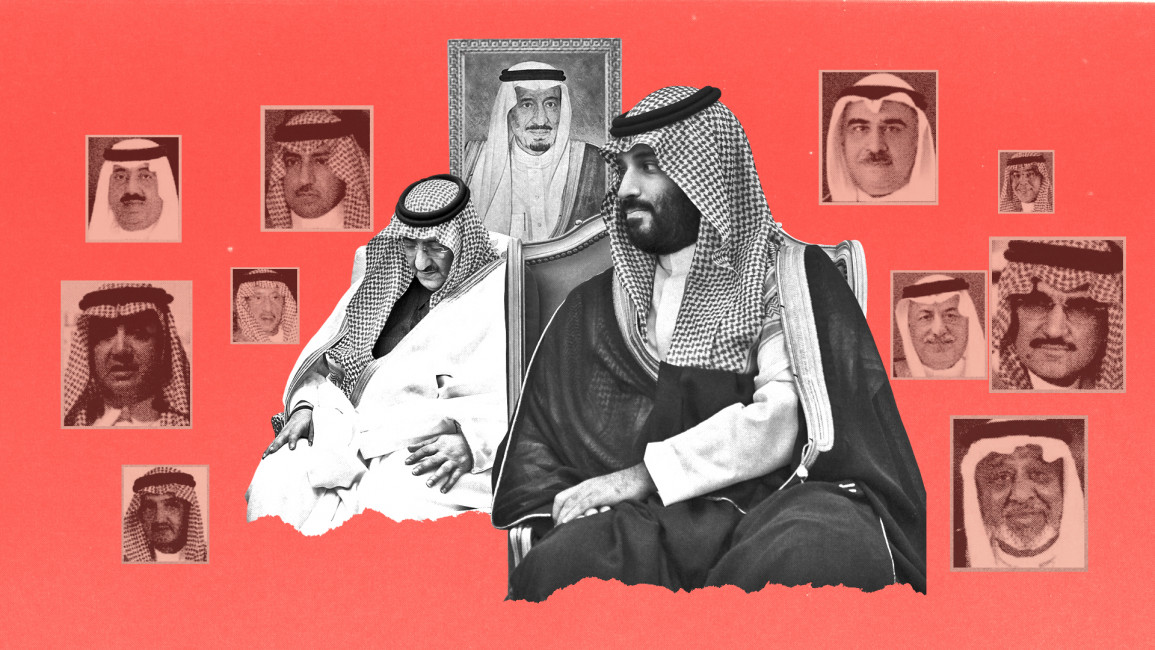
As King Salman's health deteriorates, a calculating, paranoid MbS waits in the wings
Speculation is mounting about how serious each of these procedures is or will prove to be for both men's health, as well as for the futures of their countries. Nevertheless, succession in the Saudi case seems more straightforward than in Kuwait, where an 83-year-old crown prince stands to take power next. The question of who his successor will be remains uncertain, and potentially subject to parliamentary concern.
When it comes to Saudi Arabia, Crown Prince Mohammed bin Salman (MbS) has successfully centralised domestic political leadership in his own hands within Saudi Arabia; he has silenced the religious community by curtailing the power of the official establishment and by arresting prominent independent clerics in September 2017, the business community with his detentions in the Ritz Carlton in November 2017, and the former crown prince through his house arrest in 2017.
Reports of how Mohammed bin Salman has gone so far as to separate his own mother and father highlight the depth of his power, and willingness to wield it even over his own parents, also revealing the profundity of his paranoia about challenges to his power. In addition, the crown prince's recent arrests of King Salman's younger brother Prince Ahmed bin Abdulaziz and of former crown prince Mohammed bin Nayef in March 2020 further solidified his position.
 |
Mohammed bin Salman will succeed his father when the time comes, and will likely appoint an easily controllable member of the ruling family as his crown prince |  |
While some have speculated that MbS may try to secure the throne before the US presidential election scheduled for November, there is little need for him to do so. He has already demonstrated the extent of his power, and a Biden administration would have to deal with him, whether he is crown prince or king.
Twitter Post
|
It is unlikely that a new American administration would manage to exert pressure on Saudi policymaking through either King Salman or the crown prince; the perception of US withdrawal from the region is profound, despite good relations with the Trump administration, and the crown prince's power is vast. Further, the king's recent surgery, a laparoscopic gallbladder removal, is not life-threatening and so is unlikely to lead to his death or abdication.
MbS's choice of successor could indicate, however, the extent to which he intends to share power with another trusted member of the family - albeit, one he is likely able to control. His choice will also show whether he has respected the promise his father is said to have made to appoint a crown prince from another branch of the family.
Read more: Saudi crown prince seeking $15 billion from rival cousin Mohammed bin Nayef in 'shakedown'
Because MbS has not, to this point, faced meaningful consequences for or challenges to his actions at home, including the infamous Ritz Carlton detentions and arrests of women's rights activists, clerics, and other political prisoners; or abroad, including his kidnapping of the Lebanese prime minister and alleged involvement in the death of Jamal Khashoggi, it is unlikely that his behaviour will change. Indeed, one reason that the international community's reactions to such events was important was their ability to set a precedent of impunity.
Mohammed bin Salman will succeed his father when the time comes, and will likely appoint an easily controllable member of the ruling family as his crown prince, as he has secured control over the domestic scene largely through imprisoning those who have challenged or could potentially challenge him.
The unwillingness or inability of the international community to confront the crown prince about his problematic domestic and foreign policy decisions has granted him free rein to form the type of government he would like to, and to take on foreign policy of his choosing as well.
Because the kingdom, like much of the world, is facing unprecedented economic challenges, incentivising the crown prince with economic benefits could potentially temper his policies, yet his succession remains largely certain.
Dr Courtney Freer is a research fellow at LSE Middle East Centre.
Follow her on Twitter: @CourtneyFreer
Opinions expressed in this article remain those of the author and do not necessarily represent those of The New Arab, its editorial board or staff.



